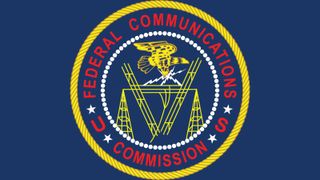Phoenix Center: Broadband Investment Bump Misses Title II Crater

The Phoenix Center has added its two cents, actually $24 billion-$30 billion, to the debate over whether/how much the FCC's reclassification of ISPs under Title II in the 2015 Open Internet Order depressed broadband investment.
The 2015 Open Internet Order's Title II reclassification meant imposing some common carrier-style regs that ISPS feared could translate to rate regs or other mandates, though the FCC forbore from most of the regs and promised no rate reg backsliding from that position. It was also the latest volley in an ongoing legal and regulatory battle dating back more than a decade.
A couple of weeks ago USTelecom, which represents major telco ISPS, released a report that found capital spending had gone up since the new FCC reversed that 2015 order.
According to USTelecom, broadband provider capital expenditures were $76.3 billion in 2017, up $1.5 billion over $74.8 billion expenditures in 2016.
The research brief was produced by U.S. Telecom VP for industry analysis Patrick Brogan."The 2017 increase comes after a two-year decline during which annual broadband capital expenditures fell a total of $3.2 billion, from $78.0 billion in 2014 to $74.8 billion in 2016," said Brogan in a blog about the research.
But Phoenix says it is not time to pop the champagne and that hiding below that slight surface increase is an iceberg of lost investment opportunity.
According to a new analysis released Thursday (Nov. 1) by the center, Infrastructure Investment After Title II, Economist George Ford signaled that while it was good that the decline in spending had been reversed, when that spending was compared with what potentially would have been spent without that reclassification, there was still "$24-to-$30 billion in investment lost" to the regulatory uncertainty of the Title II "drama."
Multichannel Newsletter
The smarter way to stay on top of the multichannel video marketplace. Sign up below.
Ford said that while "recent data from USTelecom suggest the declines in capital spending in the telecommunications sector have ceased for now, capital spending appears to be well below expectations...The small increase in capital spending in 2017 is welcome but fails to mark a full recovery," he said.
And given that the Title II issue is yet to be settled--there are a number of lawsuits challenging the FCC's deregulatory Restoring Internet Freedom order and calls for Congress to take some action, the outlines of which remain blurry, Ford predicts that ISPs will continue to hedge their capital spending for fear of another wild spin of the regulatory ping-pong ball.
Contributing editor John Eggerton has been an editor and/or writer on media regulation, legislation and policy for over four decades, including covering the FCC, FTC, Congress, the major media trade associations, and the federal courts. In addition to Multichannel News and Broadcasting + Cable, his work has appeared in Radio World, TV Technology, TV Fax, This Week in Consumer Electronics, Variety and the Encyclopedia Britannica.

